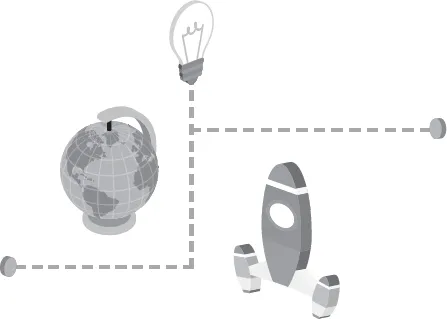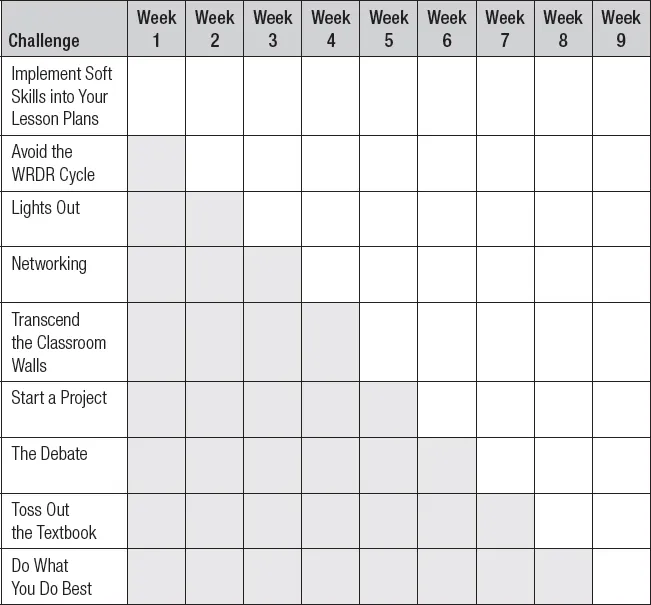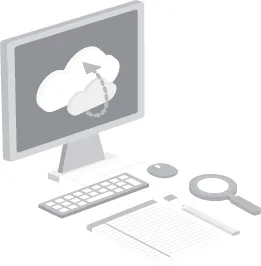WEEK 1
IMPLEMENT SOFT SKILLS INTO YOUR LESSON PLANS
Plans are nothing; planning is everything.
—DWIGHT D. EISENHOWER
To make the Future-Ready Challenge a success, you must start at the beginning, in the planning stages, because when changes aren’t structured, you can’t measure their growth. In other words, you have to know what you’re aiming for. And to do this, you must mindfully begin to implement digital age skills into your everyday lessons.
Challenge
Your challenge is to add a line to your lesson plans that includes the digital age skill(s) being developed. Aim to do this for every class you teach, every day you teach. Your awareness of incorporating digital age skills into your everyday lessons is simply the most effective way to impact your students’ understanding and learning of these skills. This simple addition to your daily lesson plans will benefit your students for years to come.
Example
Consider creating a lesson where students must collaborate in order to solve a problem. In other words, go beyond memorization and dive into problem solving. Design a problem that includes multiple parts in order to solve the problem or multiple ways to solve the problem.
FUTURE-READY DETAILS
Digital Age Skills Used
• Innovation
• Creativity
• Communication
• Collaboration
• Digital Literacy
• Critical Thinking/Problem Solving
ISTE Standards Addressed
• Global Collaborator
• Empowered Learner
• Digital Citizen
• Creative Communicator
Suggestions
Create a spot in your lesson plan where you can physically write down the digital age skills you will be touching on. You can then refer to these skills as you write out your lesson plan, even marking the areas in the lesson plan where each skill will be incorporated.
Reflection
After completing this challenge, ask yourself the following questions. This is an excellent opportunity to share with a peer who is undertaking the challenge as well.
1. In what ways did this challenge change/influence my teaching style? How have my students and I benefited from this change?
2. In what ways did the challenge change the way my classroom functions? How did this improve the learning process?
3. How did the use of technology and digital resources facilitate the implementation of this challenge in my classroom? Which resources were the most effective? How can I use these resources to further develop and advance my curriculum?
WEEK 2
AVOID THE WRDR CYCLE
The only way to make sense out of change is to plunge into it, move with it, and join the dance.
—ALAN WATTS
My wife and I hate to do laundry. It’s a never-ending, endlessly repeating process. You know even while you are doing it that you will have to do it again tomorrow. You just go through the motions, not paying much attention to what you are doing. What we don’t want to do to our kids is repeat that same monotonous, pointless cycle in the classroom. We don’t want our kids to come to school thinking that today will be just like yesterday.
Challenge
Break the WRDR cycle in your classroom. It’s up to you! Keep your mind firmly focused on memorable and engaging project-based learning.
Example
Instead of going through the WRDR cycle, change up your next scienc...






